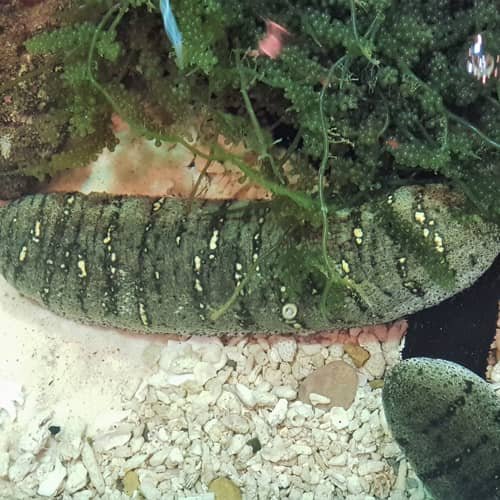
by University of South Australia
They’re a marine delicacy loved across Asia, but the humble sea cucumber is also proving to be a key ingredient in preventing diabetes, according to new research from the University of South Australia.
Exploring the medicinal properties of sea cucumbers (Holothuria scabra), researchers found that processed dried sea cucumber with salt extracts can inhibit a compound that is associated with increased risk of diabetes, thereby reducing the likelihood of the disease.
To date, there is no commercially available therapeutic agent to inhibit the formation of this compound, called Advanced Glycation End product (AGE).
AGEs form when proteins and/or fats combine with sugars in the bloodstream. When accumulated in high levels, they increase diabetic complications, including heart disease, Alzheimer’s, Parkinson’s, kidney disease, and cancer.
Lead researcher, UniSA’s Dr Permal Deo, says understanding how the bioactive compounds in sea cucumbers can inhibit AGEs could protect against these diseases.
We know that an accumulation of AGEs is associated with complications of type 2 diabetes, so strategies to prevent this may reduce the risk of developing diabetic complications,” Dr Deo says.
“Biologically active novel compounds in medicinal plants and foods are potential therapeutic agents to prevent diabetic complications.
“Sea cucumbers are known to have a range of therapeutic properties, including anti-inflammatory and antioxidant properties, so we wanted to explore their bioactive compounds as AGE inhibitors.
“We found that processed dried sea cucumber with salt extracts and collagen can significantly inhibit AGEs by lowering a range of sugar related metabolites in the body and reducing the risk of diabetes.”
In Australia, almost 1.3 million people have type 2 diabetes. Globally, about 422 million people have diabetes, with 1.5 million deaths directly attributed to the disease each year.
Almost 60 per cent of all cases of type 2 diabetes can be delayed or prevented with changes to diet and lifestyle.
“These results provide sound evidence that sea cucumbers could be developed as a functional food product to help battle the onset of diabetes and diabetic-complications.”
This research was conducted in collaboration with Fiji National University and the University of the Sunshine Coast.
Contact
Dr Permal Deo
E: Permal.Deo@unisa.edu.au
Reference (open access)
Wong, H.Y., Jaunay, E.L., Lau, W.C.D., Peake, B., Ram, R., Southgate, P.C. and Deo, P. (2023), Holothuria scabra Jaegar 1833 (Sandfish) extracts and collagens modulate protein-bound Ne-carboxymethyllysine, Ne-carboxyethyllysine and methylglyoxal-derived hydroimidazolone-1 levels. Int J Food Sci Technol, 58: 1962-1969. https://doi.org/10.1111/ijfs.16341
Editor at the digital magazine AquaHoy. He holds a degree in Aquaculture Biology from the National University of Santa (UNS) and a Master’s degree in Science and Innovation Management from the Polytechnic University of Valencia, with postgraduate diplomas in Business Innovation and Innovation Management. He possesses extensive experience in the aquaculture and fisheries sector, having led the Fisheries Innovation Unit of the National Program for Innovation in Fisheries and Aquaculture (PNIPA). He has served as a senior consultant in technology watch, an innovation project formulator and advisor, and a lecturer at UNS. He is a member of the Peruvian College of Biologists and was recognized by the World Aquaculture Society (WAS) in 2016 for his contribution to aquaculture.
